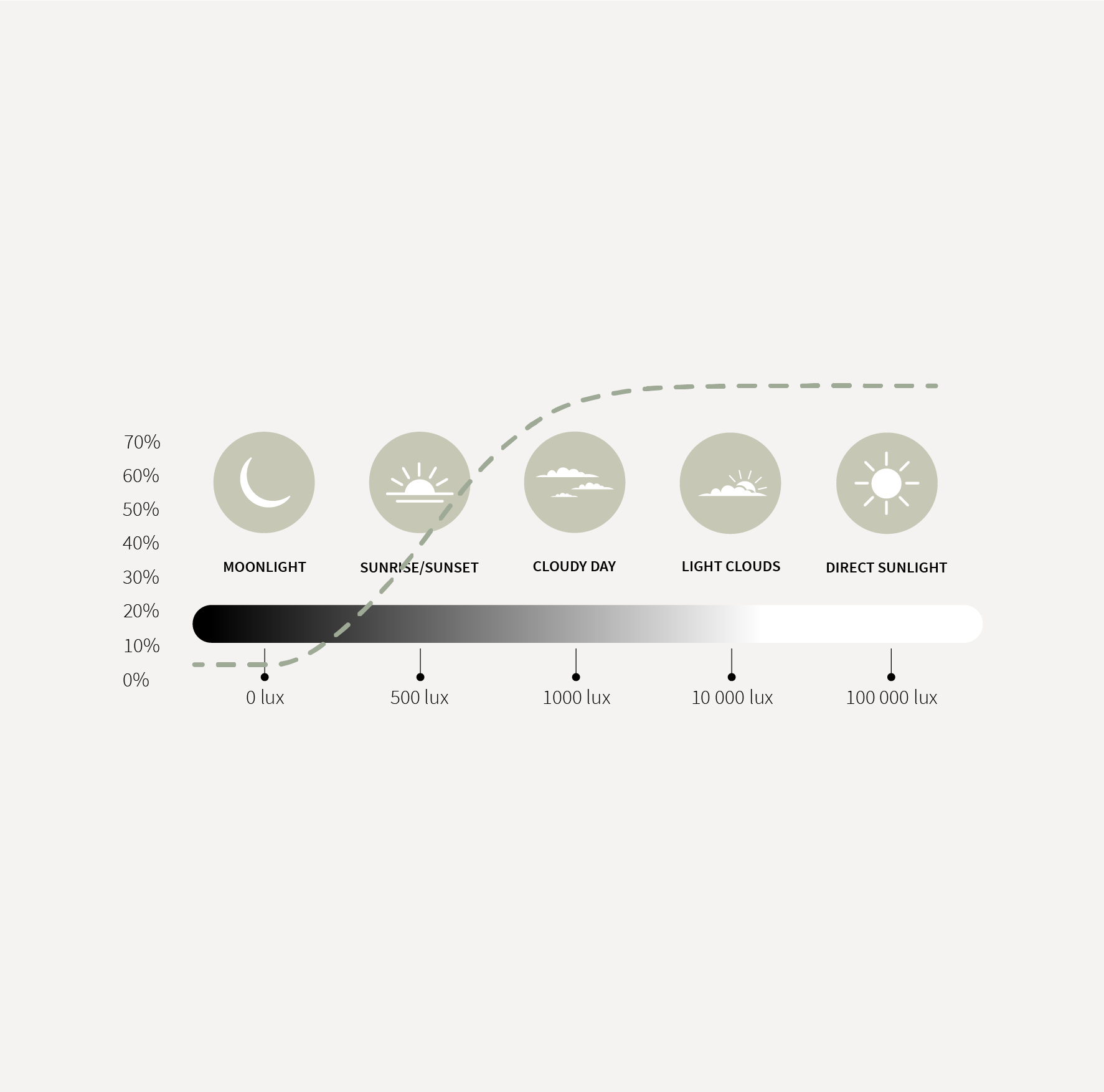Light is development
Why are we so dependent on light in order to feel good? The answer lies in our evolution. Over millions of years, our bodies and senses have evolved with the sun and sky at the centre.

Virtually Neanderthals
To understand how light affects us humans, we need a little perspective. Human-like creatures have been in existence for a couple of million years, with modern humans evolving 200,000 years ago. As humans, we basically have the same physique and biology now as we did millions of years ago, quite simply. However, the first artificial light source, the incandescent bulb, did not become commonplace until the start of the 20th century. As a result, electric lighting has not had time to affect us at all from an evolutionary perspective. When we plan, build and illuminate our properties, we can consequently work on the assumption that they are going to be occupied by that a group of Neanderthals.
Daylight sets the biological clock
Over this long period of time, we and all other living creatures have adapted to the conditions found in nature. When we were living on the savannah, we were outdoors almost all the time, and access to daylight determined the conditions for our survival. With the life-giving sun at the centre, we developed our abilities and synchronised our lives with the daylight – what we now refer to as the circadian system or “the biological clock”.
Over the course of the 24 hours that the earth spins on its axis, we humans adapt our natural rhythm according to our access to daylight. We come to life with the first morning light, hopefully alert and refreshed, and ready to take on the new day. As the shadows grow longer and dusk falls, we unwind and get ready to rest.
The natural light balances our hormonal system and affects the body’s production of the sleep hormone melatonin and the stress hormone cortisol. As the light levels drop, the production of melatonin increases, before decreasing when the light returns in the morning. As the light levels increase, cortisol kicks in and makes us more awake and alert.
Why we feel good – and bad
Happiness can often be as simple as going for a walk on a beautiful day, when we can enjoy the colours and see the light peeping through the foliage. After just an hour or so, we are filled with new energy.
Similarly, we are affected by the absence of daylight. A rainy and overcast day can sometimes be enough to make us feel depressed. For people who live up at high latitudes in the northern hemisphere, where daylight is limited during the winter months, there is also a risk of suffering from seasonal affective disorders (SAD). As soon as we start tinkering with our biological clock and the supply of daylight, we quickly notice the consequences. Anyone who has flown across multiple time zones and suffered jet lag, or who has worked shifts, knows exactly how this feels.
We know instinctively that daylight makes us feel good. Despite knowing this, however, it is only in the last 20 years that we have started to understand why.
